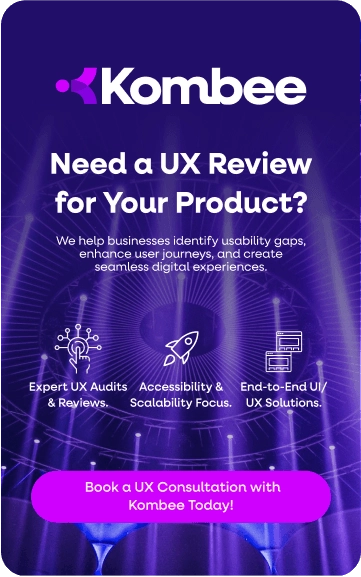Introduction
“Why can’t we build just one app that works everywhere?” If you’ve asked this recently, as a founder, product manager or CTO then you’re not alone. In 2025, the demand for faster development, lower costs and seamless cross-device experiences is higher than ever. The good news? You no longer need separate apps for iOS, Android and web. Hybrid app development is smart, scalable and also cost-effective. It lets you build once and deploy everywhere. In this blog, we’ll explore how hybrid apps work, their key benefits and why they’re becoming the go-to choice for businesses looking to grow fast without sacrificing quality.
The Mobile Market Is Bigger Than Ever
Let’s talk numbers.
According to Statista the global smartphone market revenue is projected to hit US$485.34 billion in 2025. That’s not just a big number but a wake-up call. Consumer expectations are rising fast and so is the need to deliver top-tier apps that work flawlessly across platforms.
But here's the challenge: building different apps for iOS, android and the web is expensive and also time-consuming. That's exactly why so many businesses are turning to hybrid app development services.
What Is a Hybrid App?
So what is a hybrid app exactly?
A hybrid app is a single application built using web technologies like HTML, CSS, JavaScript or also Dart but it's wrapped in a native shell which allows it to be installed on mobile devices just like any other app.
This means hybrid apps can:
- Access native features (camera, GPS, storage)
- Run on multiple platforms using one codebase
- Be published on both Apple App Store and Google Play Store
Think of it as the best of both worlds that is the speed of web development and the power of native integration.
You can explore our mobile app development services and see how we can help you build a seamless hybrid app that works across all platforms
Hybrid vs Native Apps: What’s the Difference?

When it comes to mobile development you’ve probably heard people debate: hybrid app vs native app which is better?
Now, what is native mobile application development? It’s when you build apps specifically for one platform like iOS or Android using platform-specific tools and languages. It offers top-tier performance and smooth UI but it takes more time and money.
In contrast, hybrid app development services allow you to build once and deploy everywhere with most of the experience still feeling native to users.
Read More: If you need more detailed information, check our blog, What’s the Difference Between Native, Hybrid, and Cross-Platform Apps?
Why Businesses Are Choosing Hybrid in 2025
1. Lower Development Costs
When you only have to build one codebase you instantly save more on development and maintenance. That’s why hybrid app development services are especially popular among startups and small businesses working with limited budgets.
2. Faster Time to Market
In today’s world, if you're not fast, you’re forgotten. With hybrid apps, you can launch your product on iOS and Android at the same time cutting your go-to-market time in half.
3. Great Performance
Thanks to modern frameworks like Flutter, React Native and Kotlin, hybrid apps now deliver near-native performance. They compile to native code or bridge to native components making animations, scrolling and transitions smooth and responsive.
4. Easy Maintenance
Need to fix a bug or push a new feature? Do it once and roll it out across all platforms. That’s the power of a unified codebase. Hybrid apps make maintenance faster, cheaper and also less stressful.
5. Consistent UI/UX
Today’s users expect apps to feel the same across devices. Hybrid frameworks offer adaptive design tools and components so your app looks and feels polished on any screen whether it’s an iPhone android tablet or Windows desktop.
6. Offline Access
Yes, hybrid apps can work offline. By storing data locally users can still use your app even without internet access. That’s a big win for people on the move or in areas with unreliable connections.
7. Seamless Integrations
Need to add a payment gateway, chatbot or also CRM system? Hybrid apps can easily integrate with third-party APIs and plugins. The ecosystems around hybrid app development services are massive and mature.
Hybrid App vs Native App: Which Should You Choose?
This depends on your goals.
- If you need maximum performance for gaming or 3D apps, go native.
- But if you want to launch fast, reach more users and control costs then hybrid is the way to go.
In 2025, hybrid apps are no longer a compromise. They’re a smart strategy. And for many businesses, the right decision isn’t native vs hybrid, it’s starting with hybrid then scaling from there.
So next time someone asks “What is hybrid app development?” you’ll know it’s not just a tech buzzword. It’s the future of mobile.
Read more: Need an App That Works on Both iOS and Android? Why Hybrid App Is Your Best Bet
Future-Proofing with Hybrid Apps
The best part? Hybrid apps are built for the future.
- Platform Ready: From phones to desktops and smart TVs to foldables hybrid apps adapt quickly to new devices.
- AI and ML Friendly: Hybrid frameworks now support AI-powered features like smart recommendations, personalization as well as predictive analytics.
- Sustainable Development: One codebase means fewer resources and deployments which is a greener way to build.
By choosing hybrid app development services you're not just building an app but you’re building an agile and future-ready platform that can grow with your business.
Conclusion
In 2025 the debate between hybrid and native apps isn’t as clear-cut as it once was. With powerful new frameworks and rising user expectations, hybrid apps now offer the speed, savings and also scalability businesses need without sacrificing user experience. Whether you’re building an MVP or scaling to millions then hybrid development provides the flexibility to launch faster and reach more platforms cost-effectively. At Kombee, we help businesses build high-performance hybrid apps that look, feel as well as function like native ones. So if you're still wondering, “Hybrid or native?” then here’s your answer: Start smart. Start hybrid. Build it with Kombee.
Frequently Asked Questions
1. What is hybrid app development?
Hybrid app development involves creating a single app that works on both iOS and Android platforms using one codebase, typically with technologies like Flutter or React Native.
2. Why are businesses choosing hybrid app development in 2025?
Businesses prefer hybrid apps in 2025 for faster development, lower costs, easier maintenance, and the ability to reach a wider audience across multiple platforms with minimal effort.
3. How to build an app in 2025?
To build an app in 2025, define your idea, choose a platform (native or hybrid), design the UI/UX, develop using modern frameworks, integrate AI or APIs if needed, test thoroughly, and launch via app stores.
4. What are the benefits of hybrid app development?
Hybrid app development offers faster deployment, lower costs, and cross-platform compatibility. It allows developers to write a single codebase for both iOS and Android, simplifying maintenance and reaching a wider audience efficiently.





